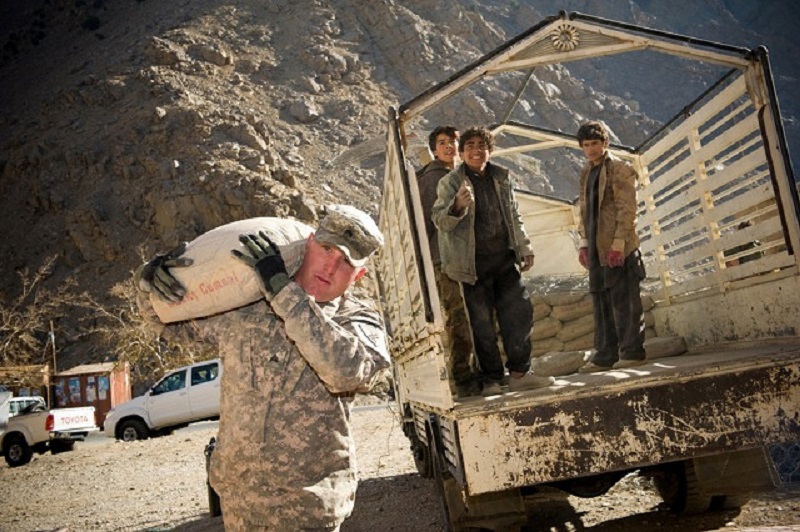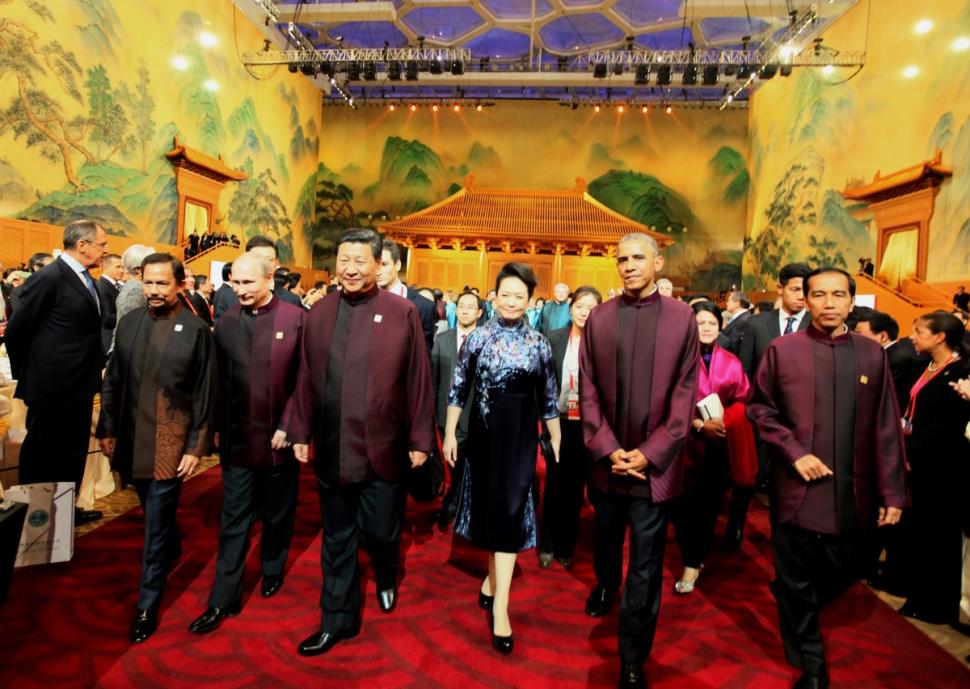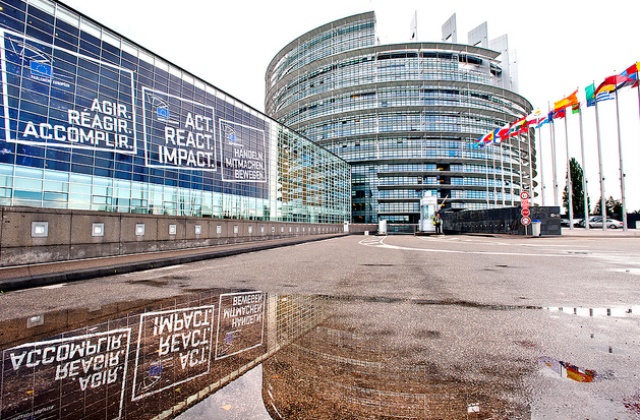War has changed since 9/11. The United States (US) military now concerns itself with cyberspace, natural disasters, disease epidemics, state-building, and much more; while still maintaining what Huntington considers to be its traditional role, “to kill people in the most efficient way possible.” As the Department of State (DoD) struggles to adapt to a world in which security threats are ever-changing and coming from increasingly different sources, the role of the military therefore becomes less clear. Following the declaration of the ‘War on Terror’, the Defense Department marked a significant shift in how the military was to conceive of its own role in a “war against a nameless, stateless, formless enemy – an enemy with goals as uncertain as its methods….” Accordingly, US military doctrine began to evolve. The Bush administration found itself presiding over large-scale military state-building initiatives in both Iraq and Afghanistan, recognizing that promoting stability was essential in preventing new conflicts and resolving old ones. As the military’s role becomes more blurred, it becomes increasingly separated from the broader society and civilian institutions of foreign policy. One thing remains constant, however, and that is: the need to protect the interests and the security of the US, by any means necessary.
Shifting global powers, and the enduring Global War on Terrorism has created a rather unique foreign policy challenge for many Western states – particularly the US – which has created unforeseen pressure on their diplomatic, economic, military, and social influence around the world. US military forces have been deployed globally at an increasing rate with the objective to influence political goals, wage war, and provide humanitarian relief. Since the Second World War (WWII), the securitization, and in turn, the militarization of American diplomacy has rapidly evolved. From the implementation of the global interventionist foreign policy adopted after WWII, and surely since the events of 9/11, the military has gradually taken on a role independent of its original mandate, which was once in the jurisdiction of civilian agencies. Americans have come to accept this in the name of national security. This notion of ‘security’ is used deliberately to characterize the existing or perceived threats that challenge a state’s well-being. As one scholar argues, this “seeming imperative to protect that ‘security’ instinctively points us toward coercive force as the answer.” Thus, the notion of securitization – as advanced by the copenhagen school of security studies – is important “for understanding how foreign policy is developed because framing issues as ones of security, and engaging in whatever actions are required to solve the issue, have proved time and time again to be a fundamental tool in the arsenal of states.”
Following the attacks of 9/11, it has become apparent that military prevention is just as important as a military cure to perceived threats that challenge the interests of the US. In that case, it can be argued, then, that post-9/11 changes in military doctrine and activities to address these increasing security threats have led to civil-military tensions. This is in part due to resources and authorities flowing to the Pentagon, “while budgets for civilian foreign policy agencies and programs remained largely stagnant.” The severity of this reallocation of resources and capabilities away from civilian foreign policy institutions to military agencies is evident in former defence secretary Robert Gates’ seminal speech on defence expenditure given in 2007: “Consider this year’s budget for the Department of Defense – not counting operations in Iraq and Afghanistan – is nearly half a trillion dollars [while] the total foreign affairs budget request for the State Department is $36 billion…. There are only about 6,600 professional Foreign Service officers – less than the manning for one aircraft carrier strike group.” In comparison, by mid-2008, “there were 1.6 million active-duty military personnel, nearly 1.6 million members of the Reserves and the National Guard, and 673,000 civilian employees in the Defense Department.”
Yet, a decade later, US civil-military relations continue to remain contentious as the DoD expands military operations into areas once held under the purview of civilian foreign affairs agencies, and accordingly, expands its budget to meet these new challenges. To enumerate, President Trump stunned US diplomats and security experts in his pledge of a ‘historic increase’ of $54 billion in military spending, bringing the 2017 Pentagon budget to $603 billion. He has stated that his proposal was a “landmark event and would send a message of American strength, security, and resolve to other countries.” However, this increase in the defence budget – which is one-sixth of the federal budget and already greater than any country in the world, comes as the US slowly winds down major wars in Iraq and Afghanistan, and remains the world’s strongest military power. Moreover, the Trump administration has indicated that it would “expand the Army to 540,000 active-duty troops from its current 480,000, increase the Marine Corps to 36 battalions from 23 – or as many as 10,000 more Marines – boost the Navy to 350 ships and submarines from 276, and raise the number of Air Force tactical aircraft to 1,200 from 1,100.”
President Trump notes that this increase in spending and expanding of military strength would force the elimination of foreign assistance programs and be offset by cuts to the State Department, all of which receives only $50 billion annually. However, President Trump does not have the final say on federal spending, as Congress has the ‘power of purse’. As such, any increase in defence spending will be met by negotiations with lawmakers. Already, much of Congress – both Democrats and Republicans – have questioned the need for an increase in military spending, with more than 120 retired US generals and admirals urging Congress to fully fund US diplomacy and foreign aid, stating that “elevating and strengthening diplomacy and development alongside defense are critical to keeping America safe.” This “gutting of America’s ‘soft power’ institutions has led the DoD to take on ‘many of [the] burdens that might have been assumed by civilian agencies in the past.” Are we then, as Brooks suggests, witnessing the securitization and “militarization of US foreign policy,” and if so, what does this mean for US civil-military relations?
[perfectpullquote align=”right” cite=”” link=”” color=”” class=”” size=””]“A failure to address the increasing securitization of US foreign policy… will only continue to challenge the current civil-military divide and threaten the stability of the state.”[/perfectpullquote]
Although Congress indeed securitizes issues pertaining to foreign affairs, the military apparatus and DoD nonetheless implement the foreign policy. This imbalance between DoD and civilian foreign policy institutions clearly has an impact on how the two sets of institutions are dealt with by the White House and in the formulation and implementation of foreign policy. Foreign policy is achieved in the aforementioned manner because “DoD and the military bring to the table significant assets: an institutional capacity to act quickly, a constituency of public support… long-term strategic and planning capabilities, and the capacity to measure and demonstrate results.” Whereas, on the other hand, the “civilian foreign policy institutions are hampered by fewer resources, internal and interagency coordination challenges… a much smaller operational capability, [and] an absence of strategic planning, and difficulty in demonstrating results.”
As a result of this divergence between civilian institutions and DoD’s capabilities for implementing foreign policy initiatives, over time, the Defense Department and the corresponding military services have been tasked with developing the capability to increase its scope of missions and functions that are not core to military combat or deterrence. This has resulted in a “growing imbalance in the resources and capabilities of the major institutions of American statecraft…. This, in turn, reinforces the policymakers’ tendency to call upon DoD for rapid response and planning, [thus] exacerbating the disparity in resources and capabilities.”
Such quests for endless, unbounded warfare has us “trapped in a vicious circle: asking the military to take on more and more nontraditional tasks, [which] requires exhausting our all-volunteer military force and necessitates higher military budgets. Higher military budgets force us to look for savings elsewhere so we… cut spending on civilian diplomacy and development….” Undoubtedly, such budget cuts will render civilian institutions traditionally responsible for regulating foreign affairs through diplomacy meaningless and ineffective. In order to counteract the failure of civilian institutions, we then turn to the military to fill the gap in capabilities and resources, further expanding its role in foreign activities and further straining the military apparatus in ensuring the security and stability of the state.
Certainly, the securitization of actor(s) and foreign policy objectives has become increasingly prevalent within the institutional framework of the US, particularly within Congress. This has resulted in a “gap in civil-military relations, [which] has reached a critical divide. With civilian leaders relying on the armed forces to perform an increasing number of duties, the military must reconnect with the public.” A failure to address the increasing securitization of US foreign policy – notably, in the areas of humanitarian interventions, stability operations, and diplomacy – will only continue to challenge the current civil-military divide and threaten the stability of the state. It therefore becomes important to understand how states can reconcile a military that is strong enough to do anything that the civilians ask of it, while at the same time ensures that a military remains subordinate enough to do only what the civilians and the state authorizes it to do.
Photo: U.S. Army Sgt. Patrick Reilly of Troy, Mich., Panjshir Provincial Reconstruction Team civil affairs, gives a hand to a local villager while delivering materials to assist in the recreation of a solid Dehe Kalan irrigation (2010), by ResoluteSupportMedia via Flickr. Licensed under CC 2.0.
Disclaimer: Any views or opinions expressed in articles are solely those of the authors and do not necessarily represent the views of the NATO Association of Canada.




